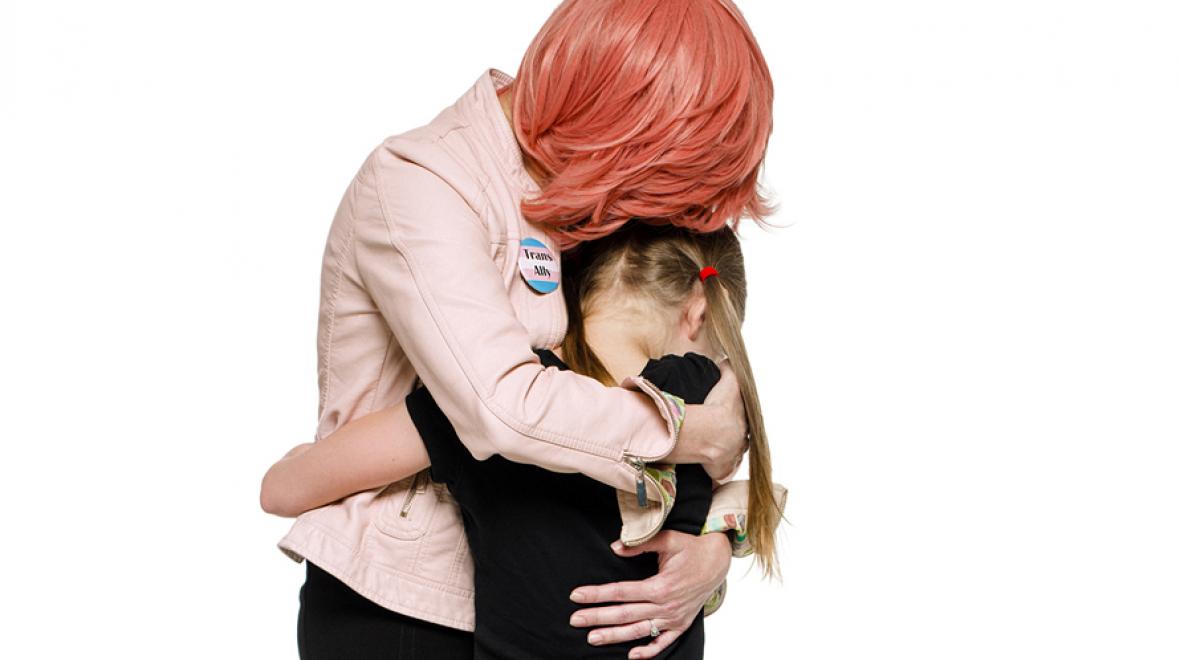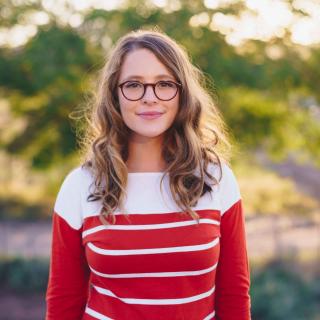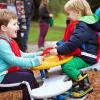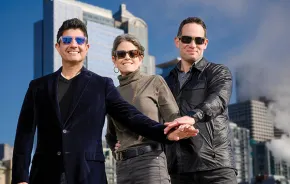
When self-described audiophile Marlo Mack began recording her daughter’s infant coos and toddler tantrums, the last thing she ever imagined was sharing these intimate audio mementos with strangers.
But in 2014 — a year after her then 3-year-old told her something was wrong in her tummy that caused her to be born as a boy instead of a girl — their story took an unexpected twist, and the Peabody Award–winning “How to Be a Girl” podcast (as well as the pseudonym Marlo Mack) was born.
Now, six years after her transition, Mack’s daughter and podcast coproducer, is a confident and thriving fourth-grader with a ton of friends (most of them girls) and a love for Legos and manga films. As for Mack, she’s recently quit her day job in public radio to produce the podcast full-time. The two live in Seattle.
Mack talked to ParentMap about the origins and future of “How to Be a Girl,” what cisgender people can do to be better allies and her advice for parents of transgender kids.
What was your goal when you started How to Be a Girl?
I think my goal was to just let the world know that we exist.
When my daughter first told me who she was back in 2012, there was almost nothing in the media about kids like her. Everything I thought I knew about transgender people was salacious and R-rated or worse. It was terrifying and lonely, and I thought the world was ending.
So, I started blogging and podcasting because I wanted people to understand how it can be that such a very young child can know such a big thing about herself, and that her mother might not be crazy to listen to her. I wanted people to hear how “normal” we are, how happy my child is and how hard this is sometimes.
Do you feel you’ve achieved your original goal?
The really gratifying thing is that I now get emails almost every week from people who say that the podcast has opened their eyes and hearts to the idea of a transgender child.
Some of them have kids who sound like mine. Some are teachers or religious leaders. Some of them are transgender adults who hear echoes of their own childhoods in my daughter’s story. And some are just random strangers with no connection to the issue, but who write to me from Boston or Berlin or Bellingham to tell me they have learned from us and they support us.
What can cisgender people do to be better allies to trans kids?
Follow the lead of the child and remember that each child is unique, whether they’re transgender or not.
Rather than trying to put a child into a particular box, the key is to remember that they are an individual, not a label or a category. Get to know them and let them tell you who they are. Respect and honor what they tell you, using the names and pronouns that they need to hear from you.
Also, please remember that these kids are vulnerable, and if we disclose their transgender status to others without their permission, we are not only violating their right to privacy but could actually be putting them in danger.
What advice do you have for parents of trans kids, especially those just coming out?
Listen. Our children know who they are. Or they will figure it out, if they are given the time and space to explore.
Give your child lots of language and examples for ways to describe themselves and define themselves. Providing options won’t “make them trans,” but it will give them the vocabulary they need to tell you who they are. Imagine knowing that you’re different but having no role models for it and no language to describe it to your own parents!
Get support. In this area, we’re phenomenally lucky to have one of the strongest and largest communities of families of transgender kids in the world. You don’t need to do this alone.
You took a bit of a hiatus from the podcast recently. Now that you're back at it, what can we expect in the future?
My daughter and I are actually moving to a new part of town this summer, and she will be starting fifth grade at a new school. We haven’t decided yet if she will disclose her transgender status to our new neighbors and to her classmates. The move presents her with an opportunity to start fresh, if she likes. She’ll have the option of remaining undisclosed and simply blend in like any other girl.
On the other hand, living with a “secret” can be a burden and a source of anxiety for trans kids. What if someone finds out and rejects her? What if they tell all the other kids at school? My daughter and I are grappling with this issue in our conversations at home, and I’ll be documenting this move and transition in upcoming episodes.
I also plan to produce episodes about other transgender people who have impacted our lives: Some of them are pretty famous; some of them are dear friends. In addition, I’d like to explore the worlds of transgender boys and nonbinary kids, as well as share the stories of transgender people around the world. The variations are pretty striking, as well as sobering: Some countries are embracing kids like mine, while too many are completely ignoring them.
What’s one thing everyone should know about trans people, and trans kids in particular?
[First,] if you’ve met more than a few hundred people in your life, then you’ve definitely met a transgender person. You’ve probably met lots and just didn’t know it!
I can’t speak for transgender people in general, or even for trans kids, but one thing I’d like people to know about my child is that she’s pretty much just like every other kid out there. She goes to school, plays with her friends, begs me for more screen time, loves candy and hates spinach. She’s totally typical and (like all humans) totally unique. Being transgender is just one detail among the thousand other details that define her.
I’d also like people to know that I think trans kids are some of the bravest and most self-aware people I’ve ever met. Imagine having the courage as a small child to tell your own parents that you are not the person they think you are. I’m incredibly proud of my daughter, and I wouldn’t change anything about her. (Although I sure wouldn’t mind if the world changed in ways that would make her life easier!)











